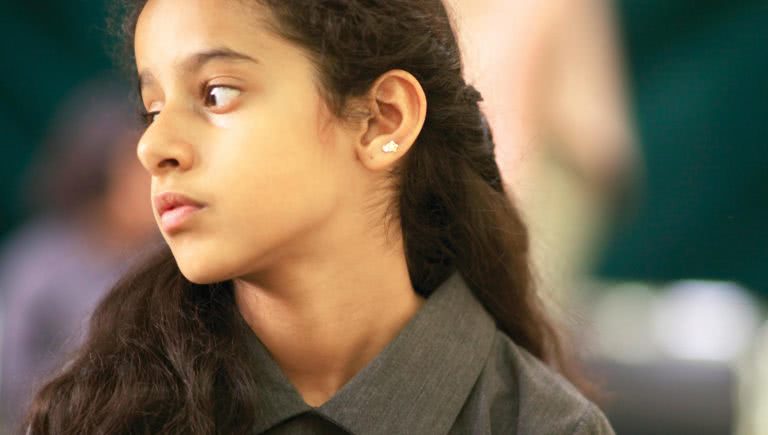Occasionally an artistic work comes along where the piece itself, its construction and design, takes a backseat to what the work represents. Take artist Marcel Duchamp’s revolutionary 1917 sculpture, Fountain; while the piece is an everyday object (a urinal), its continuing significance lies not in composition, but in how it completely challenged the definition of art.
Similarly the importance of Wadjda does not lie solely in the content of the film but in what it represents and how the world has changed as a consequence of its existence. Not only is it the first full-length feature shot entirely inside Saudi Arabia (where theatres and cinema are still banned), but it’s also the first feature-length film made by a female Saudi director, Haifaa Al Mansour.
Wadjda (Waad Mohammed) is a 10-year-old girl living in the Saudi capital of Riyadh. With hopes of racing a neighbourhood boy she becomes fixated on a bike at a local store, an idea her mother (Reem Abdullah) refuses to entertain as it clashes with The Kingdom’s tightly held gender roles. As her mother becomes increasingly distracted by Wadjda’s father’s attempts to take a second wife, our young heroine begins an enterprising journey to make the bike hers.
The examination of the role of women and their varying reactions to their societal and religious ‘place’ in Saudi culture makes this film unique. The young Wadjda, yet to be fully culturally indoctrinated; her mother’s enforcement of the ‘rules’ which begins to wane as her own needs go unfulfilled; and Wadjda’s strict head mistress who represents the most disturbing product of this culture – when the oppressed become the oppressors, perpetuating the cycle of subjugation.
While the film does lack pace, this is nonetheless an inspiring and important piece of cinema and will hopefully increase transparency of this shrouded part of the world.
4/5 stars.
See Wadja in cinemas now.

































